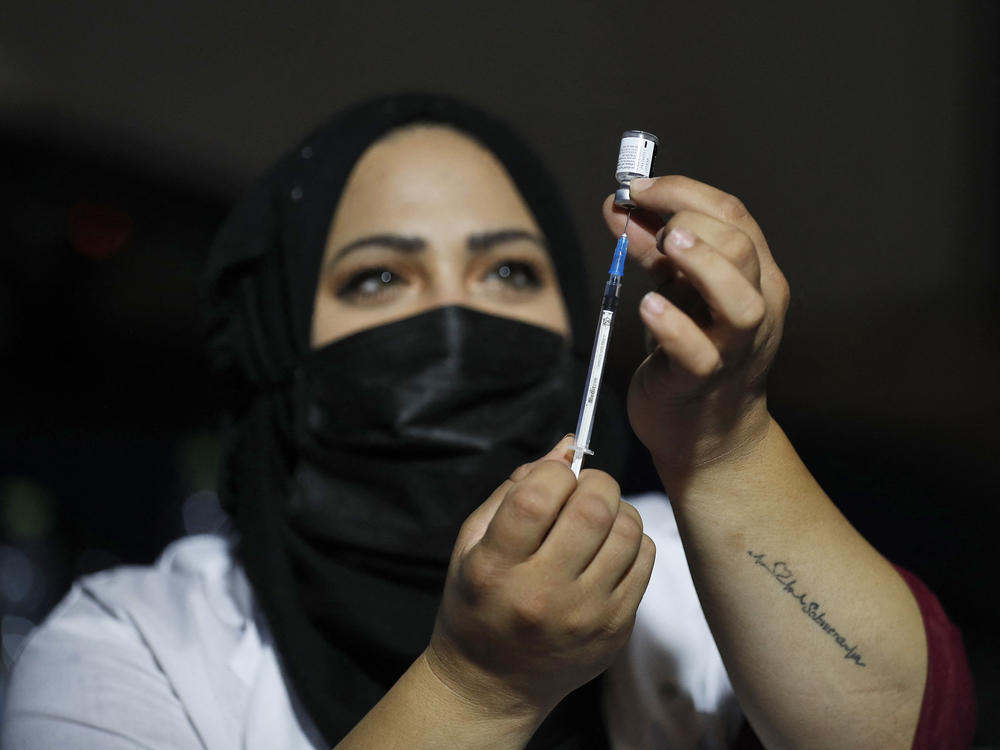Section Branding
Header Content
WHO Calls For A Delay In Booster Shots To Prioritize Under-Vaccinated Countries
Primary Content
The head of the World Health Organization has called on countries to delay giving out booster shots of the COVID-19 vaccine until nations with low vaccination rates can inoculate more of their population.
During a news conference Monday, WHO Director-General Tedros Adhanom Ghebreyesus again suggested that giving out booster shots in countries with already high vaccination rates could lead to more dangerous coronavirus variants appearing across the globe.
"In addition, there is a debate about whether booster shots are effective at all," Ghebreyesus said, according to Reuters.
The WHO previously argued against giving out follow-up doses while some countries continue to struggle vaccinating their population in the first place. Now it is calling on those planning boosters to wait.
But some countries, including the United States, have already announced their intention to offer booster shots in the coming weeks.
The Biden administration said it would begin making available third doses of the Pfizer and Moderna vaccines beginning on Sept. 20 to people who were eight months past their second shot.
Dr. Vivek Murthy, the surgeon general, said health officials were concerned about the waning effectiveness of the vaccines over time as well as a renewed surge in cases driven by the exceptionally contagious delta variant.
Hungary, where Ghebreyesus made his remarks, became the first European country to offer booster shots when it started offering third doses in August. Israel was the first country in the world to offer a booster dose of the Pfizer vaccine.
Ghebreyesus noted that people with compromised immune systems should get booster shots when they become available.
Copyright 2021 NPR. To see more, visit https://www.npr.org.

